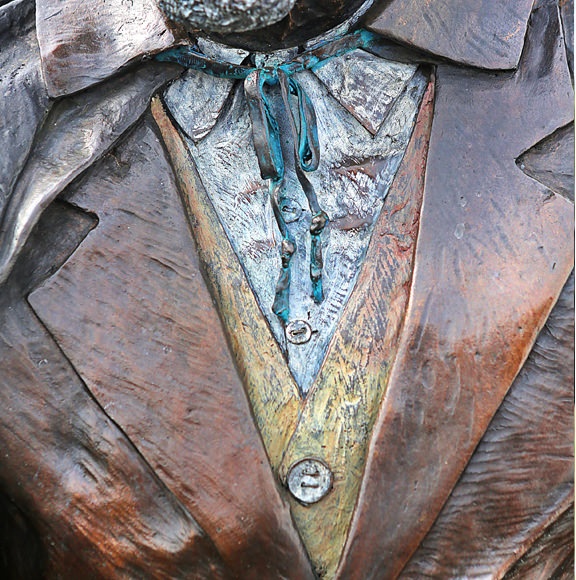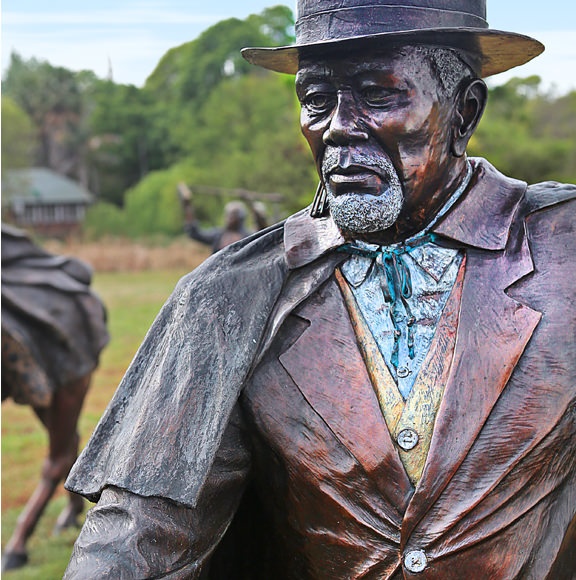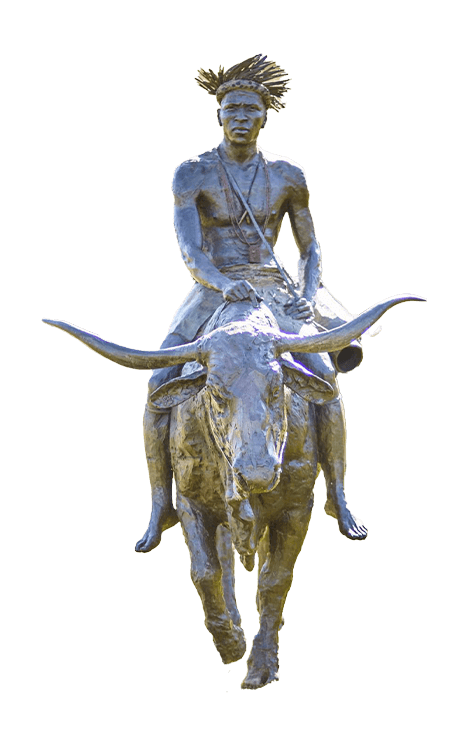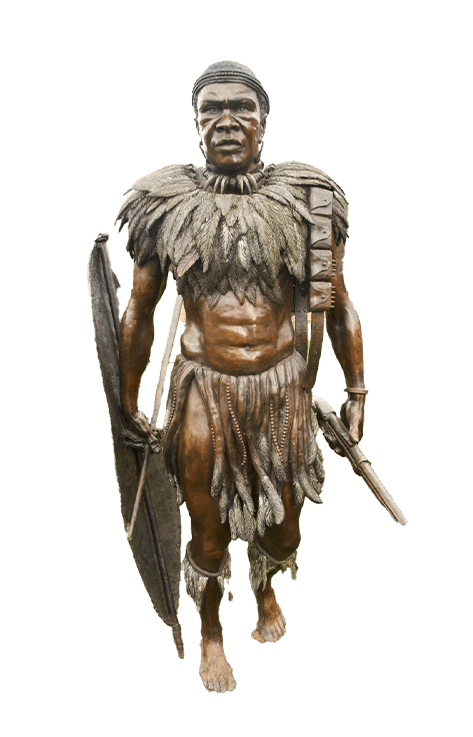


"Being of a very observant disposition, he knew how to resist and how to yield at the right moment; procured himself allies, even among the invaders of his territory; set his enemies at variance with each other; and by various acts of kindness secured the respect of those even who had sworn his ruin."
Eugene Casalis, French Missionary from the Paris Evangelical Missionary Society brought to Lesotho by Moshoeshoe I in 1833
King Moshoeshoe I
1786 - 1870
Founding Father and first King of the Basotho
King Moshoeshoe I was born as 'Lepogo' in the north of what is now Lesotho, the son of Mokhachane, a chief of the Bamokoteli sub-clan.
He gained a reputation as a young boy for daring cattle raids and in early adulthood took the name Moshoeshoe, an imitation of the sounds made by a knife during shaving that symbolized his deft skills at rustling cattle.
Moshoeshoe I became one of the most successful southern African leaders of the 19th century, his diplomacy and military actions securing his kingdom's long-term independence. He stood up to the encroaching Zulu empire, won several battles against European settlers and colonialists and managed to create a baSotho state that escaped incorporation into segregated South Africa.
During the period known as iMfecane/Difaqane in the early 1800s Moshoeshoe led his followers south to the impregnable stronghold of Thaba Bosiu ('Mountain at Night') in the western Maluti mountains. By attracting and incorporating the remnants of other clans caught up in the maelstrom of the iMfecane he was able to grow his kingdom as they fled and sought his protection.
Through his ingenious diplomatic tact, his power and influence grew as he offered a friendly hand to his defeated enemies, giving them land and assistance to cultivate crops. It was further strengthened by alliances as Moshoeshoe I chose wives from other clans including daughters of the long-established Bafokeng chiefs. In this way he succeeded in eventually uniting the many small groups to form the baSotho nation.
The severest threat to the baSotho were the Boer settlers as they trekked north, away from the British in the Cape Colony. Basotho were forced to defend their fertile farm lands against Boer encroachments in three successive wars. Moshoeshoe had built effective alliances with neighbouring Coloured communities like the Bergenaars and the Philanders, who joined him in wars against the Boers.
In 1854 the Orange Free State declared itself an independent Boer republic and further conflict broke out. After a baSotho defeat in 1868, Moshoeshoe I sought outside intervention, agreeing to place himself under the protection of the British Queen. This secured the remnants of his country's long-term survival. BaSotholand became a British protectorate, but Moshoeshoe I still managed to preserve his kingdom.
Moshoeshoe I, warrior and statesman extraordinaire, died in 1870 and was buried at his stronghold Thaba Bosiu. In 1884, the British Protectorate of baSotholand was formalised.
At independence in 1966 the protectorate resumed its African name, Lesotho, and is known by the baSotho as the kingdom closest to heaven.

